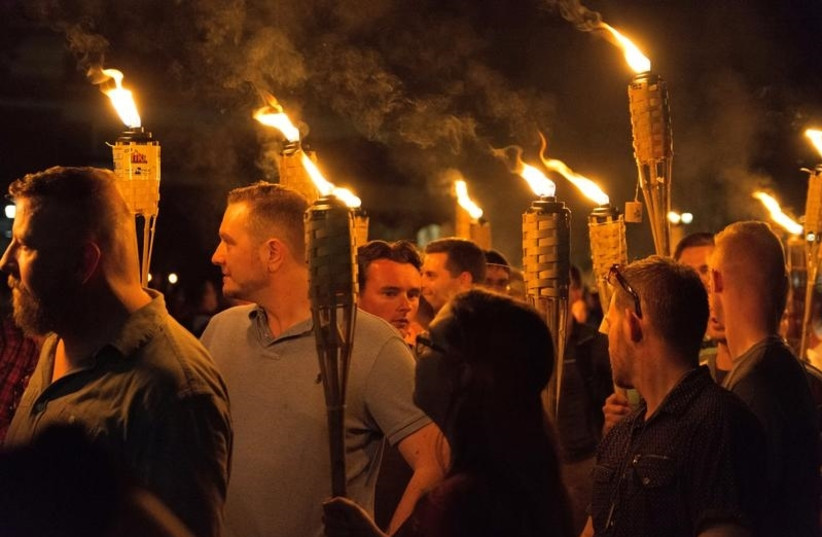The organizers of the deadly neo-Nazi Charlottesville rally in 2017 have been ordered to pay close to $5 million to plaintiffs for legal costs in a lawsuit, adding to the penalties already facing the mostly bankrupt crew of extremists.
The rally organizers were sued later in 2017 by Charlottesville residents who suffered trauma and injuries because of the deadly riots. The $4.91 million for lawyers' fees and other expenses incurred by the plaintiffs is substantially less than the $13 million they sought but adds to the debt that will likely follow the defendants for the rest of their lives.
In his decision released Tuesday, Magistrate Joel Hoppe cited the massive amount of research that the plaintiffs’ legal team put into establishing that a conspiracy led to the deadly violence in the Virginia college town.
“Fact discovery in this case was complex, expansive, and voluminous,” Hoppe wrote. “When Plaintiffs filed this lawsuit in October 2017, the world had seen and heard reports of the torch march, overtly racist and antisemitic chants, and violent clashes in Charlottesville a few months earlier. But ‘[t]he world had not yet seen or heard about the planning and coordination that enabled the conflagration’,” he added, quoting a filing by the plaintiffs.
The legal team used message exchanges between the conspirators, among other sources.

Judge reduced fine in January
In January, the judge in the case, Norman Moon, slashed the $26 million a jury awarded plaintiffs last year to $2.35 million, basing his ruling on a Virginia law that caps punitive damages at $350,000. The amount was nonetheless burdensome to an array of groups and individuals who have said that they were broke.
The lawyers were funded by a nonprofit set up to litigate the case, Integrity First for America, and by donations.
“The impact of this case will be felt for years to come,” Amy Spitalnick, the executive director of Integrity First for America, told the Jewish Telegraphic Agency. “Not just on the defendants who continue to face major financial, operational, and legal consequences for their actions, but also in the broader fight against extremism as it serves as a model for accountability.”
